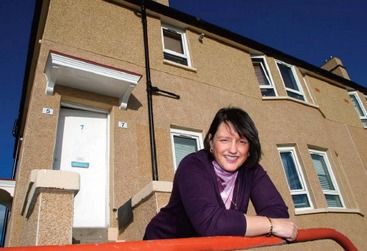Do you generally feel good about your life? Do you have a sense of purpose and confidence that you can achieve the things you want? If you are lucky enough to feel this way, then congratulations – you obviously have a high level of positive mental wellbeing.
It’s hard to over-estimate how important mental wellbeing is to people. It is what makes life a fulfilling experience or, without it, a grind.
Health researchers have been thinking about positive mental well-being for some time. Often, studies that look at mental health measure symptoms of negative ill health rather than positive wellbeing. However, there has been a growing unease about the assumption that these concepts are equivalent opposites. Two people, each free from any obvious symptoms of mental ill health, may still differ in terms of their positive mental wellbeing.
A collaboration between NHS Health Scotland, University of Warwick and the University of Edinburgh produced The Warwick-Edinburgh Mental Well-being Scale (WEMWBS) in 2006. This is a validated tool for measuring people’s wellbeing, and now forms the basis of one of the Scottish Government’s national performance indicators on improving wellbeing across the population.
Improving the general mental wellbeing of a population hardly sounds like a straight forward task. Urban regeneration is one promising place to start. Successful regeneration may include a range of improvements to people’s sense of opportunity and empowerment, and to their social and physical environments.
Analysis by Lyndal Bond and the GoWell Team has explored the characteristics of homes and neighbourhoods that are most strongly associated with residents having high (positive) WEMWBS scores. At this stage we have looked at strength of associations rather than their causal directions.
Our present findings fit well with the regeneration mantra ‘it’s more than bricks and mortar.’ Some of the strongest associations with mental wellbeing were related to the way landlord services were delivered. In particular, a measure that combined general satisfaction with the landlord, a feeling that the landlord keeps residents well informed, and that landlord decisions take residents’ views into account was strongly associated with residents’ WEMWBS scores. Better quality landlord services = higher mental wellbeing.Of course, the bricks and mortar are important too. We found that people who told us they live in good quality homes and attractive peaceful neighbourhoods are most likely to enjoy high levels of mental wellbeing.

This is in keeping with previous research on housing improvement. High satisfaction with housing improvement works was also associated with positive wellbeing. These findings were based on a survey of 4500 adult residents living in some of Glasgow’s most disadvantaged areas – places where improvements in wellbeing are particularly important. The same survey also found evidence that for many measures, the quality of both the physical environment, and the quality of landlord services, was improving over time (albeit with room for further improvements). One of our future tasks is to see whether further improvements will be reflected in better mental wellbeing for these communities.
For more information on GoWell, visit www.gowellonline.com or contact the GoWell Communications Manager on 0141 287 6269
